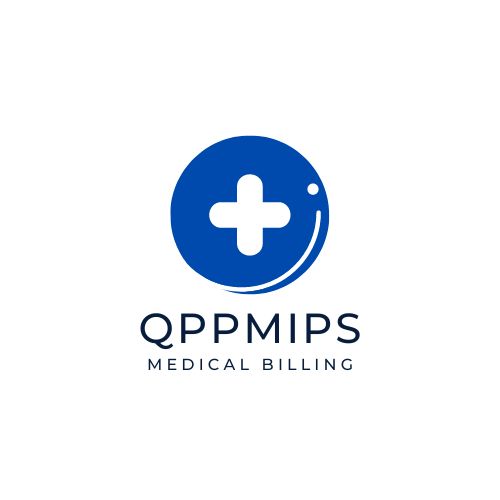Urology medical billing is a crucial aspect of healthcare revenue management that requires meticulous attention to detail and adherence to specific guidelines. From accurate documentation to compliant coding practices, ensuring that billing processes meet industry standards is essential for healthcare providers to receive proper reimbursement and avoid potential compliance issues. In this article, we will delve into the guidelines for urology medical billing services, highlighting key aspects that practitioners and billing professionals should consider for efficient revenue cycle management.
Introduction to Urology Medical Billing
Urology Medical Billing Services involves the process of accurately documenting, coding, and submitting claims for services related to urological conditions and treatments. These services encompass a wide range of procedures, including diagnostic tests, surgeries, and therapeutic interventions aimed at addressing issues affecting the urinary tract and male reproductive system. Given the complexity of urological care, effective billing practices play a crucial role in ensuring that healthcare providers receive timely reimbursement for the services they render.
Understanding the Importance of Accurate Billing
Accurate billing in urology is paramount for several reasons. Firstly, it facilitates proper reimbursement, ensuring that healthcare providers receive payment for the services they deliver. Secondly, it helps maintain compliance with regulatory requirements and prevents potential legal issues related to billing fraud or improper claims submission. Additionally, accurate billing enhances patient satisfaction by minimizing billing errors and ensuring transparent communication regarding healthcare costs.
Guidelines for Urology Medical Billing Services
Documentation Requirements
Documentation serves as the foundation for urology medical billing, providing a comprehensive record of patient encounters and the services rendered. To meet billing requirements, healthcare providers must ensure thorough documentation that includes:
Patient Information
Complete demographic details, including patient name, date of birth, contact information, and insurance coverage.
Procedure Details
Detailed descriptions of procedures performed, including indications, techniques, and any complications encountered during the intervention.
Medical Necessity
Documentation supporting the medical necessity of services rendered, including clinical assessments, diagnostic findings, and treatment plans.
Coding Practices
Accurate coding is essential for translating documented services into billable claims. In urology medical billing, providers must adhere to standardized code sets, including:
CPT Codes
Current Procedural Terminology (CPT) codes that accurately reflect the procedures performed, such as cystoscopies, prostate biopsies, and lithotripsy.
ICD-10 Codes
International Classification of Diseases, Tenth Revision (ICD-10) codes that capture the diagnosis or reason for the encounter, enabling proper coding of medical conditions and supporting the medical necessity of services.
Compliance with Regulations
Urology medical billing must comply with various regulations and guidelines to ensure ethical billing practices and prevent fraud and abuse. Key considerations include:
HIPAA Compliance
Adherence to the Health Insurance Portability and Accountability Act (HIPAA) regulations regarding patient privacy and the secure transmission of electronic health information.
Fraud and Abuse Prevention
Implementation of internal controls and monitoring mechanisms to detect and prevent fraudulent billing practices, such as upcoding, unbundling, or billing for non-rendered services.
Claims Submission Process
Efficient claims submission is crucial for timely reimbursement and cash flow management. Providers should focus on:
Timeliness
Submitting claims promptly to avoid delays in reimbursement and minimize the risk of denials due to billing deadlines.
Accuracy
Ensuring that claims are accurate and complete, with all required documentation and coding information included to facilitate timely processing and adjudication.
Insurance Verification and Authorization
Prior verification of patient insurance coverage and obtaining necessary authorizations for procedures are essential steps in urology medical billing to prevent claim denials and delays in reimbursement.
Handling Denials and Appeals
Providers should have robust processes in place for managing claim denials, including timely identification of denied claims, investigation of the reasons for denial, and submission of appeals when appropriate to recover rightfully owed reimbursements.
Benefits of Outsourcing Urology Medical Billing
Outsourcing urology medical billing to experienced third-party billing companies can offer several benefits, including cost savings, expertise in billing regulations, and improved revenue cycle management efficiency. By leveraging specialized billing services, healthcare providers can focus on delivering high-quality patient care while ensuring optimal financial outcomes.
Conclusion
Effective urology medical billing requires adherence to specific guidelines and best practices to ensure accurate documentation, compliant coding, and efficient claims processing. By following these guidelines and leveraging outsourcing solutions when necessary, healthcare providers can streamline their billing processes, enhance revenue generation, and maintain compliance with regulatory requirements in the dynamic healthcare landscape.
Unique FAQs
- Q: Why is accurate documentation crucial in urology medical billing?
- A: Accurate documentation supports the medical necessity of services rendered and facilitates proper coding and claims submission, ensuring timely reimbursement.
- Q: What are common coding challenges in urology medical billing?
- A: Common coding challenges include accurately capturing procedure details, assigning appropriate CPT and ICD-10 codes, and ensuring compliance with billing regulations.
- Q: How can healthcare providers prevent billing fraud and abuse in urology?
- A: Providers can prevent billing fraud and abuse by implementing robust compliance programs, conducting regular audits, and educating staff on ethical billing practices.
- Q: What are the benefits of outsourcing urology medical billing services?
- A: Outsourcing billing services can lead to cost savings, expertise in billing regulations, improved billing accuracy, and enhanced revenue cycle management efficiency.
- Q: How can healthcare providers effectively handle claim denials and appeals in urology billing?
- A: Providers should have established processes for identifying, investigating, and appealing claim denials promptly to recover rightful reimbursements and prevent revenue loss.


Leave a comment